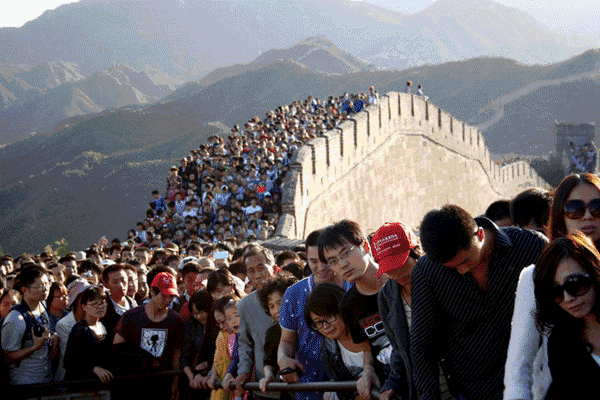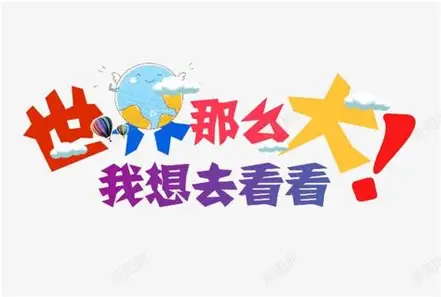The Top 10 Chinese Memes in 2025
In the vast universe of internet culture, Chinese memes have carved out a unique niche, reflecting the humor, creativity, and social commentary of China’s netizens.
These memes, China’s version of global humor, offer a glimpse into the daily lives, feelings, and societal dynamics of the Chinese people..
The Top 10 Memes with China’s version
“People Mountain People Sea” (人山人海)

This meme humorously depicts the crowded scenes often encountered in public places in China. It resonates with many who have experienced the hustle and bustle of Chinese cities, especially during holidays and peak travel times.
Learn authentic Chinese from those who live and breathe the culture.
Specially tailored for kids aged 3-18 around the world!
Get started free!The image typically shows a sea of people, capturing the overwhelming nature of crowds in a light-hearted way.
“I’m Not Cold, But My Heart Is” (我不冷,但我的心冷了)

A playful expression used when someone feels a sense of emotional disappointment or indifference. It’s often paired with images of people dressed in warm clothing but with a seemingly cold demeanor.
This meme allows individuals to express their feelings in a humorous and relatable manner.
“The World is So Big, I Want to See It” (世界那么大,我想去看看)

Inspired by a resignation letter that went viral, this phrase became a symbol of the desire for freedom and adventure.
It reflects a yearning to break free from routine and explore the unknown, resonating with many who dream of traveling and experiencing new things.
“I’m Not Rude, But I Have Principles” (我不是不近人情,但我有原则)

Used to assert one’s boundaries and principles in a lighthearted way. It’s a popular response when someone is accused of being too strict or unfriendly, allowing individuals to maintain their dignity while adding a touch of humor.
“My Mom Thinks I’m a Loser” (我妈觉得我很失败)

A relatable meme for many young people who feel their parents have high expectations.
It’s often used with a touch of self-deprecation and humor, highlighting the pressure many face to succeed and meet familial standards.
“I’m Not Drunk, But My Heart Is” (我没喝醉,但我的心醉了)

Similar to the “cold heart” meme, this phrase is used when someone is emotionally affected, often by love or heartbreak. It’s a creative way to express vulnerability without directly stating one’s emotions.
“I’m Not Lazy, But I’m Tired” (我不是懒,而是累了)

A common excuse used humorously to justify procrastination or a lack of motivation. This meme captures the universal feeling of exhaustion and the need for rest, making it widely relatable.
“I’m Not Short, But I’m Just Not Tall” (我不是矮,只是不高)

A witty way to respond to comments about one’s height, turning a potential insult into a humorous remark. It showcases the clever wordplay often found in Chinese memes.
“I’m Not Ugly, But I’m Not Beautiful Either” (我不是丑,只是不漂亮)

A self-deprecating yet humorous take on one’s appearance, often used in a light-hearted manner. This meme allows individuals to address comments about their looks with humor and confidence.
“I’m Not Wrong, But I’m Not Right Either” (我不是错,只是不对)

A clever response when caught in a situation where one might be partially at fault but not entirely wrong. It’s a humorous way to navigate conflicts and disagreements.
“Wu Jing Says “No Way” in Uniform”(吴京说达咩)

In this meme, Wu Jing, dressed in a uniform, makes a cross gesture and adds the word “Dahmei” (meaning “Nope” in Chinese), conveying a determined refusal and disapproval. It can be used to express negation of improper behaviors or ideas.
“Sad GG Bond”(悲伤猪猪侠)

This meme shows GG Bond with a downcast expression, looking quite dejected, which can be used to convey feelings of sadness or disappointment.
“Super Expectant Cat”(超期待猫猫)

This meme features a cat wearing a cute hat, looking up with sparkling eyes full of eagerness, perfectly expressing a state of great anticipation.
The Meme Phenomenon
Memes have become an integral part of our digital landscape, serving as a form of expression that transcends language barriers.
In China, the meme culture is particularly vibrant, with netizens constantly creating and sharing content that captures the essence of their experiences.
These memes often incorporate elements of wordplay, imagery, and cultural references that are uniquely Chinese, making them both entertaining and insightful for those looking to understand Chinese society.
The Role of Technology and Meta Products
The popularity of Chinese memes is closely tied to the digital platforms and technologies that facilitate their creation and spread.
Meta products and similar technologies have played a crucial role in this process. These platforms provide users with the tools to create, edit, and share content effortlessly.
Features like video editing, image manipulation, and social sharing have made it possible for anyone to contribute to the meme culture.
Moreover, the integration of ads and content on these platforms helps in reaching a wider audience. Companies recognize the power of memes and have started incorporating them into their marketing strategies.
For example, by improving meta products and content, platforms can better serve their users and attract more engagement.
The use of essential cookies and optional cookies also plays a role in personalizing the user experience, making it more enjoyable and tailored to individual preferences.
Cultural and Social Impact
Chinese memes not only provide entertainment but also serve as a mirror reflecting societal sentiments and cultural values.
They offer insights into the collective consciousness of Chinese netizens, highlighting issues that matter to them and serving as a form of social commentary.
The ability to create and share memes allows individuals to express their feelings and opinions in a creative and often more acceptable way than direct discourse.
These memes can also be seen as a form of hard work and creativity, as netizens put effort into crafting content that resonates with others.
They provide a platform for people to share their experiences, discover new perspectives, and connect with others who understand their feelings. From kids to adults, women to men, memes have the power to transcend demographics and unite people through shared laughter and understanding.
The Safer Experience and Control
As meme culture continues to thrive, platforms are also focusing on providing a safer experience for users. This includes implementing features that allow users to control the content they see and share.
For example, users can choose to enable or disable certain cookies, such as essential cookies required for basic functionality and optional cookies that enhance personalization.
This level of control helps users tailor their experience to their preferences, ensuring they can enjoy the fun and engaging aspects of meme culture without unnecessary intrusions.
Additionally, platforms are working to improve their services by reviewing and moderating content to prevent the spread of harmful or inappropriate material. This ensures that the meme ecosystem remains a positive space for creativity and expression.
By understanding and responding to user feedback, these platforms can continue to evolve and provide a better experience for everyone involved.
FAQ About Chinese Meme
What do optional cookies mean?
Optional cookies are used to provide additional features or functionality to the user’s experience. For example, storing users’ preferences and other information about users that can enhance their experience on the website。
What do essential cookies mean?
Essential cookies or strictly necessary cookies are cookies that are essential for a website to function correctly.
These are cookies are necessary to provide an online service on a website or used solely to carry out or facilitate the transmission of communications over a network.
Conclusion
The 10 most popular Chinese memes showcased in this article are just a glimpse into the rich and vibrant world of Chinese internet culture. They demonstrate the creativity, humor, and resilience of Chinese netizens.
As technology continues to evolve, it’s likely that new memes will emerge, capturing the ever-changing dynamics of Chinese society. For those interested in understanding Chinese culture and its digital expression, exploring these memes provides a fun and engaging starting point.
So, next time you come across a Chinese meme, take a moment to appreciate the humor and the cultural context behind it—it might just offer you a deeper understanding of China’s digital landscape.
Whether you’re using a browser to watch videos, playing games, or simply browsing through posts, the world of Chinese memes is waiting to be discovered and enjoyed.
If you want to learn more math knowledge, click the link below, and Wukong Education will always be with you in your learning journey.
Learn authentic Chinese from those who live and breathe the culture.
Specially tailored for kids aged 3-18 around the world!
Get started free!
Bella holds a Master’s degree from Yangzhou University and brings 10 years of extensive experience in K-12 Chinese language teaching and research. A published scholar, she has contributed over 10 papers to the field of language and literature. Currently, Bella leads the research and development of WuKong Chinese core courses, where she prioritizes academic rigor alongside student engagement and cognitive development. She is dedicated to building a robust foundation for young learners covering phonetics (Pinyin), characters, idioms, and classical culture while ensuring that advanced courses empower students with comprehensive linguistic mastery and cultural insight.










![Learn Mandarin: Top 6 Tips + 4 Platforms [2025 Updated] Learn Mandarin: Top 6 Tips + 4 Platforms [2025 Updated]](https://wp-more.wukongedu.net/blog/wp-content/uploads/2023/12/image-42-520x293.jpeg)










![9 Best Platform for Free Mandarin Courses [2025 Updated] 9 Best Platform for Free Mandarin Courses [2025 Updated]](https://wp-more.wukongedu.net/blog/wp-content/uploads/2024/02/image-428-520x293.png)
![High School Rankings | Top 10 Picks For Higher Education [2025 Updated] High School Rankings | Top 10 Picks For Higher Education [2025 Updated]](https://wp-more.wukongedu.net/blog/wp-content/uploads/2024/01/image-420-520x293.png)





Comments0
Comments